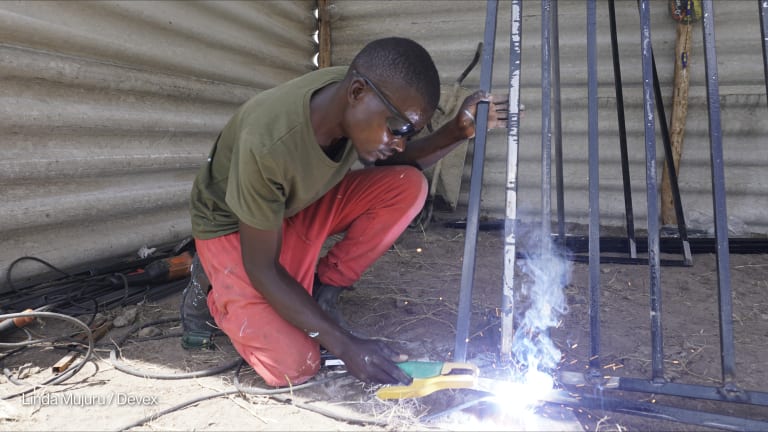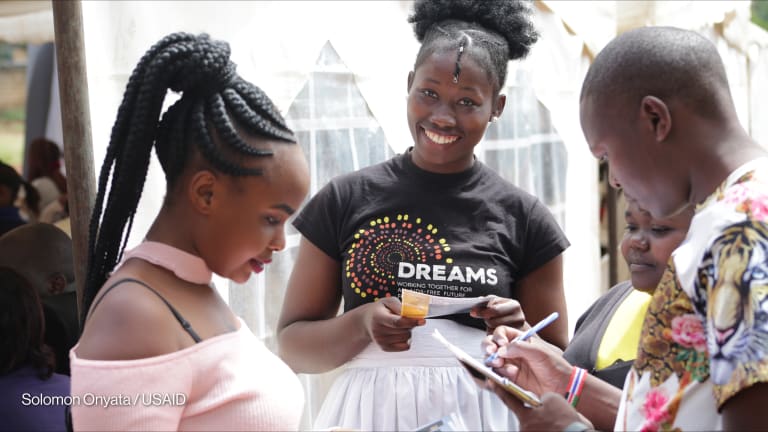Harassment, death threats, and burnout: The risks of child advocacy
Kyoka Shodladd, an 18-year-old activist from Thailand, began taking to podiums, attending global dialogues, and working with international NGOs at 11 years old. The teenager, who uses they/them pronouns, would advocate for climate justice, LGBTQ+ equality, and democracy, encouraged and supported to do so by various local and international organizations. But being a child activist cost Shodladd friends, exposed them to harassment, and affected their mental health.
“I’ve faced verbal harassment and threats from strangers … simply for holding protest signs or responding to their questions. Initially, I felt terrified, but over time, those feelings of terror turned into numbness as I became accustomed to negativity,” Shodladd told Devex.
It is increasingly common to see young people speaking at global summits, explaining how issues such as climate change and mental health are affecting their generation. Passionate and oftentimes armed with strong personal stories to share, they can make compelling advocates for international organizations. At the 28th United Nations Climate Change Conference, or COP 28, there was a dedicated child and youth pavilion, while at the most recent U.N. General Assembly, there was a “Youth Blast,” a day of youth-led meetings.
Search for articles
Most Read
- 1
- 2
- 3
- 4
- 5








